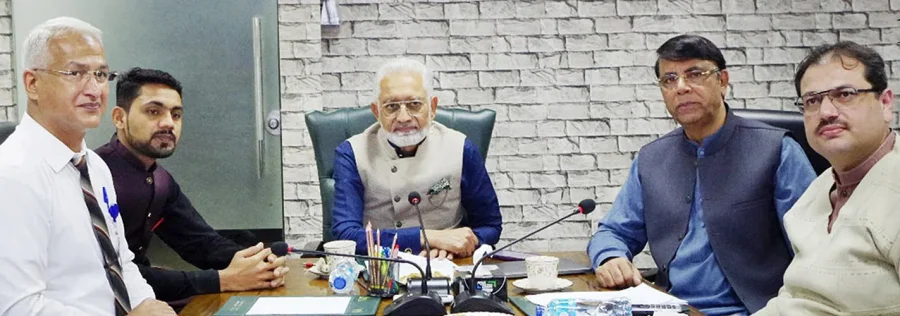Punjab Caretaker Health Minister Professor Dr Javed Akram has said the government wants to give the Sehat Sahulat cards only to the poor segments of society in the province. He was addressing the 33rd meeting of the steering committee on Health Facilitation Programme at the Punjab Health Initiative Management Company, presided over by Caretaker Federal Minister for Health Dr. Nadeem Jan. The Punjab minister, while expressing his views, said that there was room for further improvement in the health facility programme. When the caretaker setup was installed, he added, Punjab owed the insurance company Rs 200 billion for the health cards. Under the leadership of Punjab Chief Minister Mohsin Naqvi, the cabinet took revolutionary steps regarding the health cards, he added. He said that major decisions were still being taken to address the deficiencies in the health facility programme.
We are not political people; so we only want welfare of people,” he said. Dr. Javed Akram said the caretakers also faced a negative campaign while improving the Sehat Sahulat programme. He said that a database of the real beneficiaries was being created in Punjab and added that before formation of the caretaker government, Rs 260 million a day were being spent on health facility card. He said that such a huge burden on the people of Punjab is unbearable. “As a result of the revolutionary measures in the health facility programme, we have reduced the expenses by 50 per cent,” the minister said. He said that the federal government was still obliged to give Rs 7 billion to Punjab under the Health Facilitation Programme. He said that the government was spending Rs 70 billion to improve the conditions of the government hospitals in Punjab. He disclosed that about 90 per cent of cesarean operations were done instead of normal delivery to earn money in the province. Likewise, he added that heart patients had two stents inserted instead of one. He said the government was still bearing 60 per cent of the expenses of patients, who get treatment on the health card in private hospitals of Punjab. All types of emergency, dialysis, cancer treatment and trauma treatment are still being done free of charge through Sehat Sahulat card, he clarified. The health facility programme would continue uninterruptedly in the province, he said. He said the rate of return of premium for the health facility programme by the previous government was very low. He said that all over the world, the rich help the poor and the healthy help the sick. He said that under the leadership of Dr. Nadeem Jan, the health facility programme should improve now, adding that in every cabinet meeting, “we have an agenda to improve the health facility programme”. Professor Dr. Javed Akram said that only licensed private hospitals were being paid under the health facility programme in the province. “In order to improve the healthcare programme, we have to adopt not aggressive but thoughtful policies,” the minister said. Caretaker Federal Health Minister Dr. Nadeem Jan assured the participants that the federal government would fully cooperate with the Punjab government regarding the Sehat Sahulat programme. Chief Executive Officer Punjab Health Initiative Management Company Dr. Ali Razaq and MS Punjab Institute of Cardiology Dr. Syed Mohsin Ali Shah participated in the meeting.










